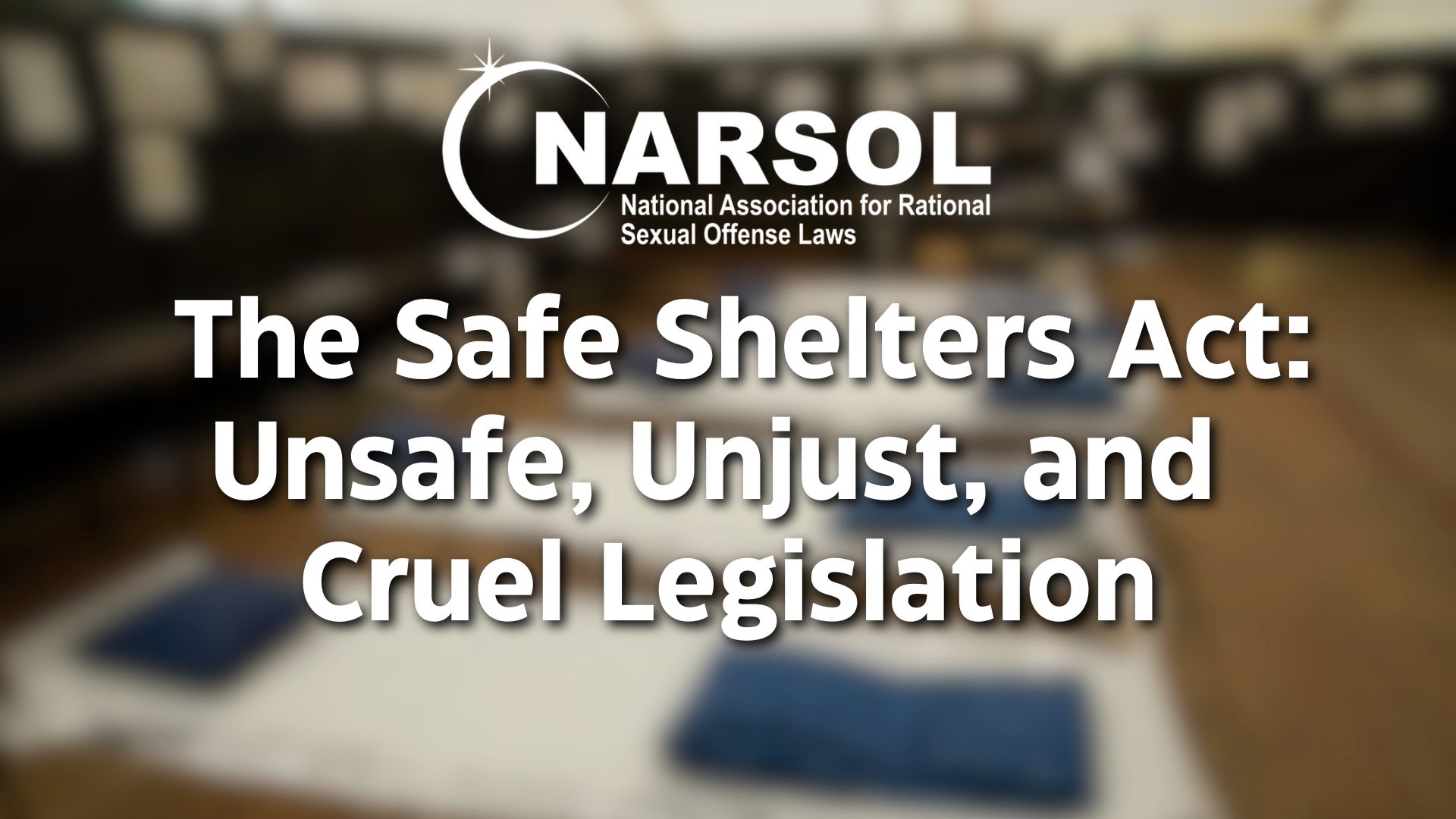NARSOL fighting strict liability case in Ninth Circuit
By Larry and Sandy . . . NARSOL is joining the fight against strict liability offense schemes.
An important case from Arizona, May v. Ryan, is pending before the Ninth Circuit Court of Appeals. The case has the rare distinction of having already been successful in a lower court for the plaintiff, May, who was convicted in Arizona state court of the strict liability offense of sexual battery. A federal judge set aside his conviction in a habeas corpus proceeding and declared the Arizona statute unconstitutional because the statute does not require proof of what is called mens rea, meaning intent to commit a crime. In addition to lacking mens rea, the statue impermissibly shifts the burden to the accused to disprove criminal intent.
The appeals court reasoned:
The State deprived May of his constitutional right to due process of law and proof of guilt beyond a reasonable doubt. By crafting its . . . law as it did, Arizona spared itself from proving sexual intent and instead burdened May with disproving it.
Arizona disagrees and has appealed the district court’s finding that the statute is unconstitutional. Since the issue of strict liability is so significant to our cause, NARSOL’s Board of Directors unanimously voted to expend funds to prepare an amicus brief in support of May. We are working closely with a law professor and anticipate that other criminal defense attorney organizations will join our brief.
We are excited to be an integral part of this exciting litigation. Strict liability offenses are an affront to the constitutional dictate that one is innocent until he is proven guilty.
For those who wish to contribute to this effort, you may do so by donating to NARSOL’s Legal Fund.


